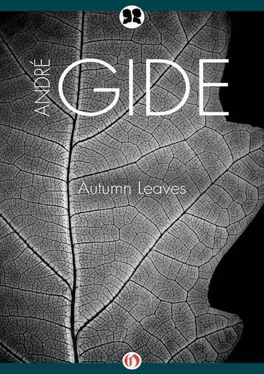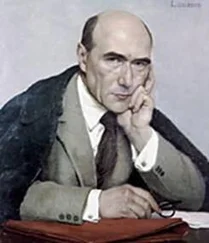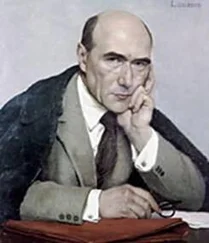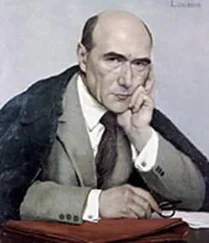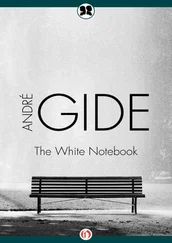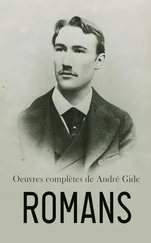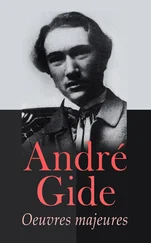The three portraits (by himself) that we have, of 1622 3and of 1630 4present to us a Poussin dictatorial and a little grumpy. The severity of his features is not softened by any desire to charm. In the little sanguine in the British Museum 5Poussin accentuates the disdainful twist of his lips that, as early, as the portrait of 1622, one felt little made for smiling, and the frowning of his eyebrows over a sharp and inquisitorial look where, in the first portrait, can be read above all interrogation and expectation. In the celebrated and more conventional portrait in the Louvre, he attains a sort of gloomy serenity. With such a face, he can readily be imagined “young or old, always alone in his studio.” 6In spite of the great influence exercised by him, he never formed any disciples; neither had he been the pupil of any master. It might be said that something was lacking because he had not served the apprenticeship of his trade; but the very defect in his virtuosity and the slowness of his hand preserved his secret value.
Malraux affirms with wide-awake perspicacity that the first creative impulse of any painter is never given directly by nature, but by some preceding work in which nature has already been interpreted; that without Cimabué there would never have been a Giotto; with the result that one can go back in this way to the graffito of the caves, those traced for the purposes of magic. For no painter is this determination truer than for Poussin. Most certainly the external beauty of the world did not leave him insensible, but it was in contact with works of art that he became conscious of his vocation. Self-taught, he put himself, when young, into the school of the ancients, bas-reliefs and statues, copying them in preference to animated or “still” life; then under the great Italian painters, of Raphael especially, whose works, moreover, he knew for a long time only through engraved reproductions. And just like Ingres later, he could have said: “My works recognize no other discipline than that of the ancients, the great masters of that century of glorious memory, when Raphael defined the eternal and incontestable limits of the sublime art. I think I have proved in my pictures that my only ambition is to be like them and to continue art on taking it up where they left off.”
Poussin is first and foremost a composer. And so he almost never works from a model, giving less heed to the counsel of reality than to the instruction of the great masters; “sucking in the milk” of Raphael, his first biographers, Bellori then Félibien say later, “receiving the nourishment and the spirit of Art, as he saw it in the works.” Poussin puts himself voluntarily and deliberately in the train of. … What is it then, what is there in him, that permits Delacroix, so different from him in so many respects, but such a judicious connoisseur, to consider him as “one of the boldest innovators in the history of painting?” What he adds throws light on his thought: “Poussin arrived in the midst of affected schools in which craft was preferred to the intellectual side of art. He broke with all that falsity.” 1Contrary to other painters, and I am speaking even of the greatest, he does not abandon himself to his gifts, does not give them full play. “There is no fine art without consciousness, and consciousness and the spirit of criticism are the same thing,” writes Oscar Wilde. Nicolas Poussin was and is the most conscious of the painters, and that is also where he shows himself the most French. “E un pittore che labora di là,” Bernin said of him, pointing to his forehead. Thought presides at the birth of every one of his pictures.
But just as Mallarmé (who was the most intellectual of the poets before Valéry) could say it is not with thoughts that one writes poetry, it is with words, Poussin teaches us: it is not with thoughts either that pictures are painted, but with lines and colors. Which does not prevent thought from coming to inhabit his canvasses, subordinate colors and lines to it, coordinate them and bring everything into harmony.
He may appear, like Ingres, a drawer rather than a painter; and often the picture may be for him only the putting of volumes into color, for even his drawing remains grouping and composition. The sensuality of the eye may very well guide him, but will never be ruling mistress; reason enthroned will always force her to respect. Dominiquin, the only living painter Poussin did not despise and consented to listen to, said to his pupils, and Poussin likes to repeat it after him: “Not a line should come from the hand of the painter that has not first been formed in his mind.”
But in advancing this delicate truth (so simple that I blush to have to express it) that, by whatever art the artist expresses himself, the craft should be only a subjugated instrument, I shall cause myself to be treated as a vandal, so unknown is it to-day; in our time, so often, that Serva has been made Padron; so often does she reign as despot, and everything else keeps silent before her.
And doubtless I can be moved, as much as by the most expressive figure, by a certain “still life” of Chardin, a dish of plums on a copper fountain, whose substantial gravity, whose devotion to art, is worthy of the meditation of Descartes; doubtless I may even prefer some little canvas of Delacroix, representing the Interior of the Duke de Morny’s Home, I think, or a certain red-hot iron stove, to some pathetic composition where he falls into the declamatory.… I should like to be understood; what I don’t like, is to hear it announced preemptorily.… This is true painting owing to its very absence of a subject; that is seeing painting divested of all spiritual virtue, so as to attach a value only to the qualities of the craft; it is seeing our greatest painters of to-day take care no longer to address themselves to our senses, to be nothing more than eye and brush. This stripping, voluntary omission, will remain, I believe, characteristic of our epoch without a hierarchy, and risks causing it to be judged severely later; yes, all the more severely because these painters will have been all the more admirable because of their craft. It is by their lack of significance that the paintings of our time will be recognized.
While the impressionists, of whom Monet is the most illustrious example in certain of his canvasses or succession of canvasses (I am thinking in particular of his waterlilies or his haystacks), offer us works deliberately decentralized, Seurat, and then in our times, Matisse, Picasso and still many another very important one, like to speak of composition, volume etc.… but the able arrangement of their canvasses remains perfectly gratuitous, independent of all subject. We have seen Matisse work for a long time on the elaboration of certain decorations, returning without respite to the modification of contours, to the skillful equilibrium of the solids.… Yet nothing governed their choice, except the need of filling up space. No spiritual or emotional motive. The work, in order to be real painting, was careful to mean nothing. That idea and sentiment have been deliberately banished from the plastic arts, that painting could have relinquished that immense domain of expression, which nevertheless was its own, and could be its property only, is something that will not fail to cause astonishment later on. And it will matter little if, after that, this domain is no longer inhabited except by the most mediocre painters and the most execrable works. Because he understood only too well that it is with fine sentiments and noble thoughts that the worst works of art are composed, the painter made up his mind not to express thoughts or sentiments at all any more. Moreover this “decerebrated” painting appeals to the need of an impatient public and speculating merchants. All that fits in with the “canned” age.
Читать дальше
